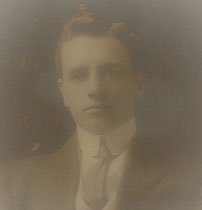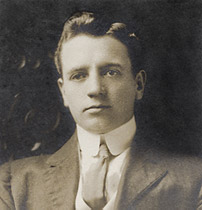This isn't yet public on the main site, but as usual, it's being posted here first...
Tutorial: Digital Photo Restoration
It discusses scanning and restoring old photographs, but also applies to enhancing other more modern images. Three types of degradation are focused on: fading, color casts and localized damage. Tools include levels, color/white balance, clone stamp and healing brushes, amongst others.
As usual, please let me know if you feel anything is unclear, if you notice any typos, or just want to add something from your own experience.
Many thanks!
Results 1 to 18 of 18
-
20th June 2011, 12:45 PM #1Administrator

- Join Date
- Apr 2008
- Location
- California, USA
- Posts
- 1,473
- Real Name
- Sean
New Tutorial: Digital Photo Restoration
-
20th June 2011, 12:58 PM #2

- Join Date
- Nov 2009
- Location
- Chandigarh, India
- Posts
- 1,541
- Real Name
- Sahil Jain
Re: New Tutorial: Digital Photo Restoration
Wow Sean,
That is another great tutorial from you. Expect a good inflow of members, as, I am sure, many people search for this tutorial.
-
20th June 2011, 08:20 PM #3Administrator

- Join Date
- Apr 2008
- Location
- California, USA
- Posts
- 1,473
- Real Name
- Sean
Re: New Tutorial: Digital Photo Restoration
Hi Sahil, glad you liked it. It's a different type of topic than is usually covered, so hopefully it will prove useful.
-
20th June 2011, 08:50 PM #4
Re: New Tutorial: Digital Photo Restoration
"dust marks, rips *of* tears, stains". *Should be or.
First typo I've ever seen you make Sean. Apart from me being picky, this, as always mate, is mint.
Apart from me being picky, this, as always mate, is mint.
-
20th June 2011, 10:32 PM #5
Re: New Tutorial: Digital Photo Restoration
This is excellent. I wish I had seen it a few years ago as it would have saved me many many hours of trial and error, and some frustrating dead ends.
I now know the difference between cloning and healing tools, which I had sort of bypassed by just trying things and seeing what effect they have.
One thing though. That scanner you pictured is the one I have and I use it for scanning negatives. Do you plan on doing a scanning tutorial? The world is in need of a clear, easy to understand and informative tutorial like this one on scanning negatives.
I get some good results but some disappointing results and I can't really work out why. I have difficulty with focus on medium format negatives.
Graham
-
21st June 2011, 02:19 AM #6Administrator

- Join Date
- Apr 2008
- Location
- California, USA
- Posts
- 1,473
- Real Name
- Sean
Re: New Tutorial: Digital Photo Restoration
Thanks, Mark. Just trying to keep you on your toes!
 It's been fixed.
It's been fixed.
-
21st June 2011, 07:47 AM #7
Re: New Tutorial: Digital Photo Restoration
AAAAAAGGGGGGGGGGHHHHHHHHHHHHHHHHHHHHHH








Could have done with this a year ago. I scanned and restored 3000 family pics dating back to 18xx. Now I'm too scared to read the tute
Last edited by McQ; 21st June 2011 at 02:30 PM.
-
21st June 2011, 09:38 AM #8
Re: New Tutorial: Digital Photo Restoration
Through much trial and error I have discovered a simliar work flow but I wish I had this around before I started. Thanks Sean.
-
21st June 2011, 02:37 PM #9Administrator

- Join Date
- Apr 2008
- Location
- California, USA
- Posts
- 1,473
- Real Name
- Sean
Re: New Tutorial: Digital Photo Restoration
Hi Graham -- thanks for the feedback. Yes, it's probably worth having a tutorial dedicated to film scanning. The main reason it hasn't been attempted thus far is because I'd ideally like such a tutorial to be generalized enough that it isn't limited to particular scanner models or scanning software, but also isn't so general that this prevents it from giving an ample amount of specific, actionable advice. Hopefully I'll find that happy medium...
PS: The scanner pictured is the Epson Perfection V700, which also happens to be the one I'm currently using. What was your difficulty? Was it that they were out of focus?
-
22nd June 2011, 02:09 AM #10
Re: New Tutorial: Digital Photo Restoration
Hi Sean,
Yes some of them are out of focus. I wondered if better neg holders would geve better results, but given the amount of sharpening I am giving digital images now it may be that I am not sharpening enough. In addition I am disappointed with the way shadows are rendered they seem to be muddy. I am going to give hdr software a go to see if I can improve the output.
I have been making 35mm panoramas with an XPAN and 60mm square images. The XPAN images are much sharper than the 6x6 images, even though the slides are sharp through a loupe.
I will post some.
regards
Graham
-
23rd June 2011, 02:50 PM #11

- Join Date
- Apr 2011
- Location
- Akersberga (near Stockholm) Sweden
- Posts
- 125
- Real Name
- Lennart Elg
Re: New tutorial - digital photo restoration
Good tutorial, but it seems to me it misses one step - or have I got something wrong?
Would I not get more dynamic range to work with by adjusting the black and white points in the scanner software so the histogram just fits inside the range of the scanner? The original image is analog, so I will not create any banding if I do this on the input side, rather than doing it after the image has been digitized.
I scan a lot of old photos for my family history, and I have always done it this way.
-
23rd June 2011, 11:56 PM #12New Member

- Join Date
- Dec 2010
- Posts
- 1
Re: New Tutorial: Digital Photo Restoration
Simple, direct instructions on how to spruce up old photos. Very good hands-on tips. I rarely use clone stamp or healing brush now because of PhotoShop CS5's Content Aware feature. Anyone interested, just google this and watch a video on this. Thanks again for a great tutorial. I forwarded this to a friend and hope he joins your group.
-
24th June 2011, 12:34 AM #13Administrator

- Join Date
- Apr 2008
- Location
- California, USA
- Posts
- 1,473
- Real Name
- Sean
Re: New Tutorial: Digital Photo Restoration
The Epson V700 is unique because it has a dual lens system (where each lens has a different max resolution). Although one would think that it's always better to use the higher resolution lens, that isn't always the case since the higher resolution comes at the expense of depth of field. In other words, the higher resolution lens could actually yield a lower resolution scan if your film (i) isn't perfectly flat or (ii) isn't placed at just the right distance above the scanner bed. The problem is that it can be difficult to control whether the high resolution or "super" high resolution lens is used for a particular scan. This varies depending on scanner software and settings. Try digging a little deeper on this topic. That would be my best guess for your resolution issue.
Last edited by McQ; 8th November 2011 at 10:44 PM.
-
24th June 2011, 12:49 AM #14
-
24th June 2011, 12:50 AM #15Administrator

- Join Date
- Apr 2008
- Location
- California, USA
- Posts
- 1,473
- Real Name
- Sean
Re: New tutorial - digital photo restoration
Hi Lennart -- thanks for sharing your experience on this. Yes, you would potentially get more tonal precision by doing this, but it wouldn't necessarily increase the dynamic range (unless the image tones were being clipped by the default settings). However, whether or not you actually get more tonal precision will depend on how the scanner and scanner software works. I suspect many scanners/software do not perform image manipulations on the analog data, and instead perform the manipulations on 12/14-bit raw data. The benefits would of course also depend on how compressed the initial histogram is, and how much you intend to stretch it. If your current workflow is effective with your particular scanner and software, then there's no need to change it in this respect. The recommendations in this article were intended to be universal.
Regardless, as long as you're saving the image as a TIFF or RAW/DNG file, tonal precision shouldn't be a huge issue. In addition, I tend to prefer starting with a digital copy of the image that is as close a match as possible to the present condition of the print -- at least from an archival perspective.
-
7th March 2012, 05:53 AM #16
Re: New tutorial - digital photo restoration
Hi friends, I have started my digital image restoration in 1992, using Adobe Photoshop v.3. Here are some samples of my work, any one interested to know the details you are welcome. on v.k9121@gmail. com




I used mainly stamp tool with 3 to 9 brush size, 50% transparency. and the image is magnified to 300% size and many layers to go back to Original for conformation.
-
8th March 2012, 12:54 AM #17
Re: New tutorial - digital photo restoration
Great tutorial. Thanks, Sean, for all your hard work!
I have a hunch that this will be needed more and more as the color print images from the 1970-2000 era begin to fade away.
I have some B&W images of my ancestors which were shot and printed in the late 19th and early 20th centuries that are still in great shape. I also have some color images taken in the 1970's which need to be scanned and digitized soon because they are fading away. I am afraid that we are going to lose a generation of photography...
-
16th November 2012, 01:21 AM #18New Member

- Join Date
- Nov 2012
- Location
- Salina, Ut.
- Posts
- 2
- Real Name
- Danny Campbell
Re: New Tutorial: Digital Photo Restoration
Hi Sean that is the same system I have used for a long time and I scan all the photos I do in color it helps a lot on the black and white photos for adjusting the color. Great tutorial from you and everybody should give it a try.
Diggers Photo Repair

 Helpful Posts:
Helpful Posts: 


 Reply With Quote
Reply With Quote

